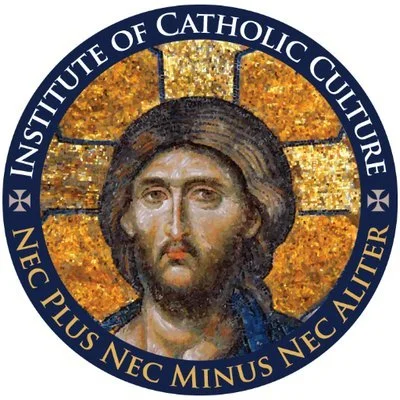Philosophy in Catholicism is the study of fundamental questions regarding existence, knowledge, values, reason, and reality, often integrating faith and reason to understand divine truths and the human condition.
Philosophy
Ancient Philosophy
✠
Ancient Philosophy ✠
The Ancient Philosophy course from Catholic Studies Academy introduces key figures like Socrates, Plato, Aristotle, and Augustine, exploring their contributions to philosophy and their impact on Catholic theology. Students will engage with foundational texts, developing critical skills in philosophy. Core texts include The Great Conversation by Norman Melchert and What is Ancient Philosophy? by Pierre Hadot.
The Crisis of Philosophy: 1900-2000
✠
The Crisis of Philosophy: 1900-2000 ✠
The Crisis of Philosophy: 1900-2000 course from Catholic Studies Academy explores twentieth-century philosophical movements, such as phenomenology, existentialism, and postmodernism, and their effects on culture and discourse. It discusses the works of philosophers like Husserl, Heidegger, Sartre, and the rise of scientism. Students will engage with how these philosophies intersect with Catholic faith and contemporary society.
Epistemology
✠
Epistemology ✠
The Epistemology course by Dr. Benjamin L. Smith at Catholic Studies Academy delves into the study of truth, reason, and knowledge. It covers classical epistemology, including theories like skepticism, relativism, and realism, while also critiquing modern approaches such as idealism and postmodernism. Students learn to demonstrate the reliability of reason and engage with the core ideas that shape contemporary culture.
Medieval Philosophy
✠
Medieval Philosophy ✠
The Medieval Philosophy course at Catholic Studies Academy covers key figures like Augustine, Aquinas, Scotus, and Ockham. It explores the synthesis of Catholic faith with ancient philosophy and delves into topics such as faith and reason, the divine names, and natural theology. The course compares different schools of thought, including Thomism, Scotism, and Ockhamism, and discusses their relevance to Catholic theology and modern culture.
Metaphysics
✠
Metaphysics ✠
The Metaphysics course at Catholic Studies Academy focuses on the nature of being and reality. It covers major metaphysical theories, the concepts of essence, existence, and the first cause of being. Students will explore classical ideas from figures like Aquinas, as well as modern perspectives from Kant and Heidegger. The course encourages critical engagement with metaphysical ideas that shape contemporary culture.
Modern Philosophy
✠
Modern Philosophy ✠
The Modern Philosophy course at Catholic Studies Academy introduces key figures like Descartes, Locke, and Kant, exploring how modern thought emphasised reason, freedom, and human autonomy. It examines philosophical movements like rationalism and idealism, with a focus on their impact on political, religious, and cultural changes, such as the French Revolution and classical liberalism. The course encourages critical engagement with the relevance of modern philosophy for Catholic theology and contemporary society.
Philosophy 101: The Pursuit of Wisdom
✠
Philosophy 101: The Pursuit of Wisdom ✠
The Philosophy 101: The Pursuit of Wisdom course by the Institute of Catholic Culture, led by Dr. John Cuddeback, introduces students to foundational philosophical thought through Plato's dialogues. It covers topics like reasoning, first principles, virtue, and the nature of wisdom, including Pre-Socratic thinkers. The course includes 18 lessons and a final exam, with a focus on cultivating a philosophical habit of mind.
Philosophy 102: Reality and the Human Person
✠
Philosophy 102: Reality and the Human Person ✠
The Philosophy 102: Reality and the Human Person course explores Aristotelian philosophy and human nature, culminating in an examination of St. Thomas Aquinas. It covers topics like nature, teleology, essence, the soul's powers, and the human body's purpose. The course is designed to help students understand key philosophical ideas and their relevance to contemporary life.
The Philosophy of Art and Beauty
✠
The Philosophy of Art and Beauty ✠
The Philosophy of Art and Beauty course explores the Catholic intellectual tradition's understanding of art and beauty. Topics include Aristotle's definition of art as imitation, St. Thomas Aquinas’ view of beauty, the connection between narrative and visual arts, and the role of the Catholic imagination in art. Dr. Daniel McInerny, a philosophy professor at Christendom College, leads the course.
Philosophy of God
✠
Philosophy of God ✠
The Philosophy of God course at the Catholic Studies Academy covers classical theism, divine attributes, and alternative philosophies about God. Students will engage with topics like the existence of God, divine simplicity, omnipotence, providence, and predestination. It also critiques modern alternatives to classical theism. The course equips learners to understand and critique key ideas in natural theology.
Traditional Logic: A Practicum in Classical Reasoning
✠
Traditional Logic: A Practicum in Classical Reasoning ✠
The Traditional Logic course at the Institute of Catholic Culture aims to improve reasoning skills by exploring key problems in politics, religion, and other areas. It introduces logical thinking through classical reasoning, guiding students to understand key concepts such as definitions, classification, and demonstration. The course also touches on modern logic and rhetoric. Instructor Dr. Timothy Kearns brings years of experience in humanities and classical studies. The course consists of 20 lessons and a final exam.
Understanding Human Nature: Man the Jewel of Creation
✠
Understanding Human Nature: Man the Jewel of Creation ✠
The Understanding Human Nature course explores the nature of humanity through classical philosophy, helping you grasp what it means to be human. Topics include the difference between humans and animals, the powers of reason and will, and the importance of contemplation. John A. Cuddeback, a professor at Christendom College, leads this course. You can learn more or enrol by visiting Christendom College’s website for free access.


